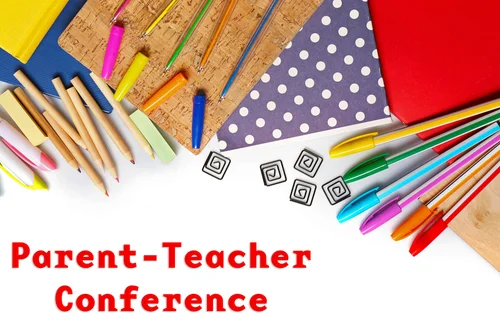What Are the Do's and Don'ts of Parent-Teacher Conferences?
Spring is Parent–Teacher Conference time and parents can make the most of this opportunity to meet with teachers by following some pre-conference guidelines. My experiences both as a teacher and as a parent have put me on both sides of the desk. As the mother of two, I understand the anxiety parents feel, and as an educator I see the challenges teachers face during this important meeting. Whether you are the parent of a nursery school age child and this is your first-ever conference, or your child is a senior in high school and you are looking down the home stretch, there are many ways that you can increase the value of this time with your child’s teachers. Let’s be positive and start with the do’s!
Before the conference ask your child what they like best about school. With a young child, it may be posed as what is their favorite thing to do at school, or what was the best part of their day. An older child may be asked what subject they enjoy the most, or in what class they feel they are the most successful.
Also, be sure to ask your child if there is anything that they don’t like about school. Sometimes we learn the most when looking at what isn’t working. Ask older children to describe what is hardest for them or to detail classes in which they feel they are not doing well.
Let your child know that you will be visiting their school and meeting with their teacher or teachers. Ask your child what they think the teacher will say about them. Not only does this question and the previous ones help you to learn about your child’s school experience, but they help you to learn something about how your child views himself or herself.
Reflect on your own impressions of how things are going. Make a list of questions or comments that you may have about the school experience in general and your child in particular. We’ve all had the experience of going into a meeting, getting sidetracked by a discussion and leaving without having all of our questions answered. Teachers do not mind a parent with a notebook.
Remember to ask a teacher about your child’s friends. Your child’s social life at school is as important as their academic life, (to them it is probably more important). Teachers usually have great insight into how students relate to their peers and can offer parents valuable suggestions on how to support their child’s social development. This aspect of a student’s life is crucial, from pre-kindergarten through high school, so it should be addressed with the teachers who have a front row seat to your child’s social scene.
Be prepared to talk about your child’s life outside of school. Volunteer information about your family which will help the teacher get better acquainted with you and your child. Sometimes it is the non-academic connections that teachers make that help strengthen the relationship within the classroom. This could be a simple anecdote about the family pet or a recent or upcoming weekend excursion. Discovering a mutual passion can create a special bond between teacher and child.
Offer to help out in ways that seem practical and appropriate. If Japan is the next unit of study and you or a family member or friend have traveled there, volunteer to share photos, or bring in a few artifacts. It doesn’t have to be that exotic, sometimes just an offer to read a special book at story time or provide or prepare with the class a special snack is greatly appreciated and reinforces the idea that you are all on the same team. The added bonus is that you get to spend some time in the classroom, learning more about the teacher and your child’s classmates.
Finally, there are a few don’ts, which though they may seem quite obvious, after thirty plus years as a teacher, I have learned that they are not obvious to everyone.
Do not bring your child to the conference unless you have discussed it first with the teacher and it has been approved. Though there are times when it is appropriate for children to be included in discussions with teachers, unless it has been planned as such a meeting, you should make other child care arrangements. Conferences are usually planned well in advance.
Do not forget to turn off your cell phone. And most importantly, if you do forget and the cell phone rings, do not take the call! Nothing is more disruptive than such an interruption. If you are expecting an extremely important call, better to reschedule the conference or alert the teacher that the interruption may occur. The teacher has made this time with you a priority and you should do the same.
And last, but not least, do not bring food or snacks to the conference. In the age of " don't go anywhere without water or coffee," this may seem extreme, but it still feels inappropriate to me. If you have scheduled the conference during the lunch hour, chances are that the teacher has delayed eating and you should be willing to do the same. My mother taught me that it is rude to eat in front of others and having sat through conferences while parents consumed big sloppy sandwiches, I tend to agree with her.
Conference time is a wonderful opportunity to communicate with your child’s teachers, do make the most of it. Parents and teachers have the same goal, successful children. Let the conference be an event where parents and teachers together focus on the child and how to support him or her. I often speak about the importance of connection where children are concerned and conference time is a golden opportunity to strengthen the connection for families and teachers.







